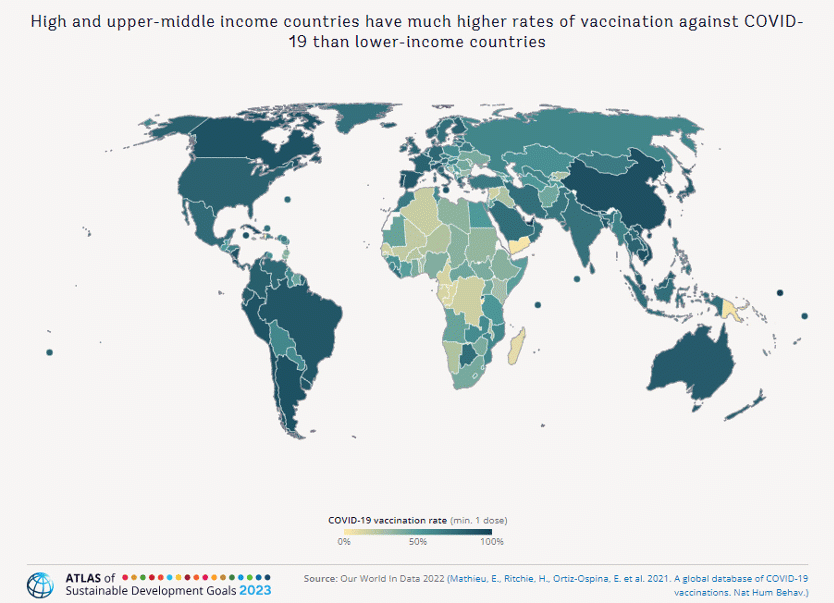
SDG 3 aims to ensure healthy lives and promote well-being for all. COVID-19 took a catastrophic toll on global health with many excessive deaths resulting in lower global life expectancy at birth by over 1.5 years. A reversal of global life expectancies at this scale was unprecedented since the early 1960s.
But COVID-19 vaccines were developed in record time. How did they impact the trajectory of the global pandemic?

COVID-19 vaccines have saved many lives. Millions of people died from COVID-19, but had it not been for the vaccines developed beginning in 2020, the death toll would have been even higher.
Results from a Lancet study show that during the first year of immunization against COVID-19 (December 2020 to December 2021) vaccinations prevented at least 14.4 million deaths globally. This figure is based on officially reported COVID-19 deaths in 185 countries – when using estimates of total excess mortality, the number of lives saved rises to 19.8 million.
Across the world, about 70 percent of the population received at least one dose of the COVID-19 vaccine. Yet there are significant differences in the vaccination rates of regions and countries. High- and upper-middle-income countries have much higher rates of vaccination against COVID-19 than lower-income countries, with some countries – like Burundi or Yemen – standing under 5 percent. In contrast, in some countries – such as the United Arab Emirates – the rates actually exceed 100% due to the vaccination of non-residents as well.
Scroll over this interactive map of the 2023 Atlas of Sustainable Development Goals to see countries’ COVID-19 vaccination rates.
To learn more about where we stand in our efforts to ensure healthy lives and promote well-being for all in the aftermath of the COVID-19 pandemic, explore the data stories and visualizations of the third story of the Atlas.
The authors are pleased to acknowledge the essential contributions of our colleague, Julia Dayton, as co-author of the SDG 3 chapter of the Atlas on good health and well-being.
In the spirit of the World Development Report 2021: Data for Better Lives, we follow an open data and open code approach: all the data, code, and visualizations of the Atlas are available for download and reuse.



Join the Conversation